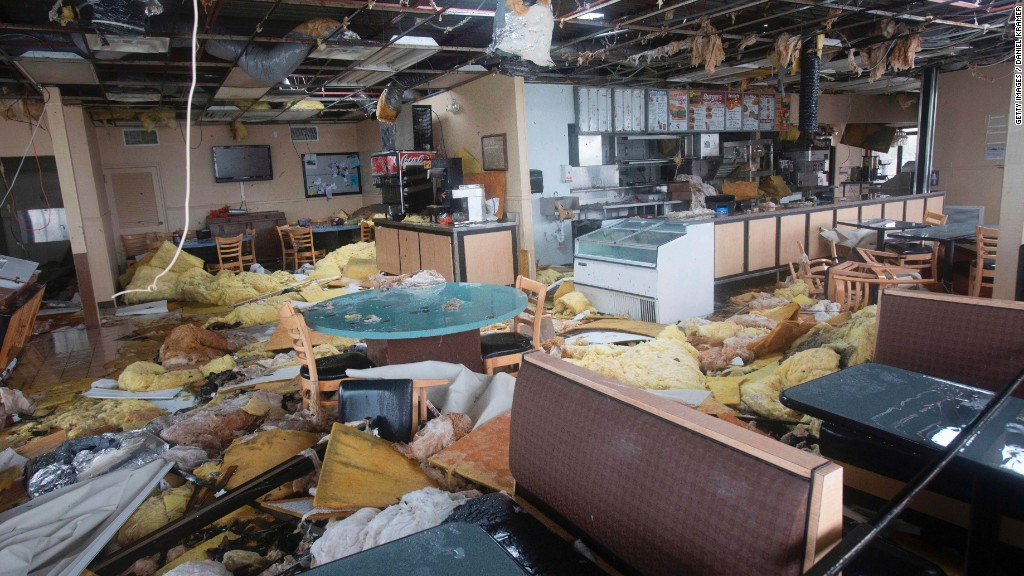
Homes flooded. Roofs blown off. Cars submerged. These are just a few of the losses millions of Texas residents face as the remnants of Hurricane Harvey continue to devastate large portions of the state.
Are you filing an insurance claim? Follow these tips from insurance experts.
Jump start the process
Residents should call their insurers as soon as possible to begin filing a claim.
"The most important thing is to call your insurer and ask what the next steps are," said Lynne McChristian of the Insurance Information Institute, an industry group representing dozens of insurers.
After contacting your insurer, expect an adjuster to be in touch within days to schedule a visit to your home and inspect the damage, McChristian said. The adjuster will be able to estimate repair costs and in some cases even write you a check on the spot to help you begin.
Adjusters will start by visiting areas that experienced the most severe damage once emergency officials give them the green light.
Document your losses
You should take a few key steps to prepare for your adjuster's visit.
Make a thorough list of your property that has been impacted. Provide purchase receipts or estimate how much the belongings cost and when you bought them.
"Take photographs and record video of every area of your home and property," said Richard Hanna of the Texas Insurance Council. Hanna advised clients to carefully explain the damages in their videos.
Don't throw anything away without checking with your insurer first. You'll likely need to show that damaged items were impacted by the storm.
If your home became uninhabitable during Harvey and you had to make other arrangements, including hotel, transportation and meals, keep those receipts as well. People with wind damage coverage are eligible for reimbursement for additional living expenses. Flood insurance, however, does not cover these expenses.
Take notes
Once you report your claim be sure you get your claim number and write it down, experts advise. This will help insurers locate your file quickly and keep things on track when you speak to customer representatives.
McChristian recommends people keep a claim diary and document every aspect of the insurance process with notes on phone inquiries, names and contact information for agents.
Ask questions if you need additional information. "The more questions people ask the better the process will go," she said.
Be wary of fraud
Major catastrophes like Harvey can be a boon for fraudulent contractors.
Hanna warned that "storm chasers" often go from home to home offering to do repairs. He advises consumers to be cautious. Always get a written estimate and not rush into signing repair contracts.
One way to avoid getting scammed: Work closely with your insurer, said USAA spokesman Richard Johnson.
"Most insurers will have a reliable network of repairers," Johnson said. Don't use someone if they're not licensed or listed with your insurer. Never pay anyone upfront -- that should be an immediate red flag if they ask for payment before the work is completed.
If you have concerns about the qualifications of an adjuster or a contractor, Hanna recommended contacting the Texas Department of Insurance's consumer protection hotline at 1-800-252-3439 or visiting the Better Business Bureau of Houston and South Texas's website.
